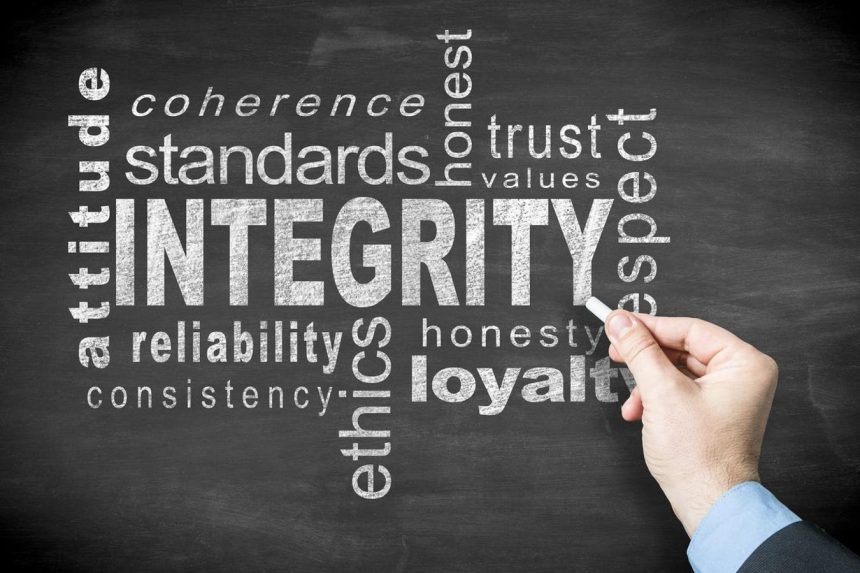Given the current state of the world, having a steady moral compass is a great asset. Every company would love to have someone who instinctively does what’s right, protects confidential information, adheres to company policies, learns from mistakes, and builds trust within professional relationships. Put more simply, every company values integrity.
However, demonstrating integrity during a job interview is no small feat. Most candidates are wary of presenting themselves in any light that might seem negative and often come armed with canned responses for typical interview questions. Evidence for this abounds, including in the study Words That Cost You The Interview. This report revealed that a shocking number of candidates litter their interview answers with an abundance of generic and unspecific words and phrases, like “You should always call the customer,” “I am unquestionably the best person on the team,” and “I never make mistakes.”
Fortunately, there’s a strategy for candidates who want to showcase their genuine integrity. It revolves around one particular question that employers often use to gauge honesty and the capacity for personal accountability. This question also reveals if candidates are prone to bending the rules, shifting blame, or hiding their shortcomings.
The question is: “Tell me about a time you experienced failure at work.” It might seem straightforward, but it’s a question that requires humility and integrity to answer correctly. Most candidates don’t anticipate it, and it’s a chance to prove your work ethic and moral code are in the right place.
Let’s dissect how you could respond to the interview question, “Tell me about a time you experienced failure at work,” and what your answer might imply.
Candidate A: “Honestly, I haven’t encountered any significant failures in my career. I see every setback as an opportunity to learn and grow, ensuring that it doesn’t culminate into what I would define as ‘failure.’ I always strive to turn around difficult situations before they escalate to failures.”
Why it’s not ideal: This response might seem safe, but it also suggests a lack of experience with meaningful challenges or a reluctance to admit and confront actual failures. It’s important to remember that everyone fails at something, and being able to acknowledge and learn from these instances is a sign of integrity, character, and growth potential.
Candidate B: “In my previous role, I increased my sales figures significantly but still fell short of my personal goal, which felt like a failure at the time. I suppose I tend to be a perfectionist.”
Why it’s not ideal: While attempting to frame a positive achievement as a failure, this response dodges the question. It doesn’t convey genuine integrity or self-awareness. Employers value candidates who can candidly discuss real shortcomings or mistakes and demonstrate what the experiences taught them.
Candidate C: “There was a time when I was optimizing a critical piece of code, and despite my efforts, I encountered several dead ends. Instead of cobbling together a makeshift solution, I consulted with my team, explaining the issues. We collectively decided to start afresh, which, though daunting, led to a more robust and flexible product. It was intimidating admitting that I hit a wall, but transparency was crucial for the project’s success.”
Why it’s good: This answer reflects someone who embraces their failures, takes responsibility, and prioritizes the greater good over their ego. It shows integrity and a commitment to quality and teamwork. Employers appreciate candidates who are honest about their failures and can turn them into opportunities for team growth and personal development.
In your next interview, if faced with a question about failure, remember that your response can illuminate a great deal about your integrity. Employers aren’t looking for infallible robots but for humans who can rise above their failures, learn from them, and contribute even more significantly to their organization’s future successes. Genuine, thoughtful responses to tough questions about failures demonstrate that you’re a candidate with integrity and resilience. So, embrace your past failures, share what you’ve learned, and let your integrity shine through.
Read the full article here





